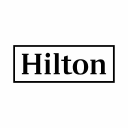Should You Book Profits In Hilton Worldwide Stock?
The shares of Hilton Worldwide (NYSE: HLT) are trading at 23% above pre-Covid levels as compared to an 8% gain in Marriott International stock (NASDAQ: MAR). Despite the huge demand crunch due to the pandemic, Hilton and Marriott reported $708 million and $1.6 billion of operating cash flow in 2020, respectively. It was largely due to their asset-light business strategy, where both companies focus on earning management & franchise fees instead of operating company-owned properties. While Hilton has historically reported higher profitability, Trefis believes that slow revenue growth and sizable long-term debt obligations are likely to weigh on finances and shareholder returns. Thus, the spike in Hilton stock’s valuation multiple (P/S) seems far-fetched. We compare the historical trends in revenues, margins, and valuation multiple of both companies in an interactive dashboard analysis, Hilton Worldwide Holdings vs Marriot International: Industry Peers; Which Stock Is A Better Bet?
1. Revenue Growth
Hilton’s growth was slightly better than Marriott before the pandemic, with Hilton’s revenues expanding by 13% p.a. from $6.5 billion in 2016 to $9.4 billion in 2019, versus Marriott’s revenues which grew at an average rate of 11% per year from $15.4 billion in 2016 to $20.9 billion in 2019. Due to the pandemic, Hilton and Marriott’s revenues declined by 54% and 50% in 2020, respectively.
- Hilton’s Owned and Management & Franchise businesses contribute 15% and 85% of total revenues. Whereas, Marriott’s Owned and Management & Franchise businesses contribute 8% and 92%, respectively. Notably, the Management & Franchise business is a key revenue and earnings contributor for both companies.
- Growth in the total room portfolio remains key to expanding fee income from the franchise segment. Hilton and Marriott’s room portfolio increased by 20% and 13% since 2017, respectively.
- Interestingly, both companies reported comparable revenue per available room (RevPAR) in the past two years. In 2020, Hilton and Marriott’s system-wide RevPAR was $46 and $46.28, respectively. (related: Missed The Rally In Hyatt Stock? Wait There Could Be More)
- Here’s What To Expect From Corning’s Q1
- Should You Pick Alaska Airlines Stock At $45 After Q1 Beat?
- Rising 25% Year To Date, Will Q1 Results Drive Chipotle Stock Higher?
- Visa Stock Is Up 15% In the Last 12 Months, Will The Trend Continue Post Q2 Results?
- What Should You Do With Caterpillar Stock Ahead of Q1?
- Is There Any Room For Growth In CSX Stock After An Upbeat Q1?
 2. Returns (Profits)
2. Returns (Profits)
Coming to Returns, Hilton’s operating margin has been 3-4% higher than Marriott’s in recent years. Notably, Hilton’s net margin and operating cash flow margins also have been consistently higher.
- In 2019, Hilton reported $9.5 billion in revenues, $1.2 billion of net income, and $1.4 billion of operating cash flow. The company’s net income and operating cash flow margins were 12.6% and 14.7%, respectively.
- In 2019, Marriott reported $20.9 billion in revenues, $1.2 billion of net income, and $1.7 billion of operating cash flow. The company’s net income and operating cash flow margins were 5.7% and 8.1%, respectively.
- Thus, Hilton’s consistently better profitability is rewarded by investors in the form of a higher valuation multiple (P/S). (related: Marriott Vacations Stock: Ride The Momentum Or Pull Out?)
3. Risk
Both companies have comparable long-term debt obligations on the balance sheet despite a sizable difference in revenues and asset base. In 2020, Hilton and Marriott reported $10.4 billion and $9.2 billion of long-term debt obligations, respectively.
- With comparable long-term debt, the interest expenses also remain fairly equal and weigh more on Marriott due to its lower profitability.
- Higher financial leverage coupled with continued revenue growth is a boon for generating surplus equity returns. However, slow growth and a loaded balance sheet negatively affect shareholder returns during recessionary periods.
- Given both company’s slow revenue growth, the operating cash flows just cover dividend payouts and stock repurchases.
- Also, Hilton and Marriott’s asset base is largely comprised of intangibles and goodwill, which limits the ability of early debt extinguishment from asset sales. (related: Las Vegas Sands Stock Is A Steal)
